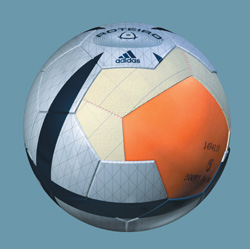The Ricoh Arena home to Coventry City F.C., is a stadium complex situated in the Rowley’s Green district of the city of Coventry, England containing a 32,609 seated football stadium, a 6,000 square meter exhibition hall, a hotel, a leisure club, and a casino. The site is also home to Arena Park Shopping Centre containing one of the largest Extra hypermarkets. The site was previously home to the Floes hill gasworks. It is named after its sponsor, Japanese company Ricoh who paid £10million deal for the naming rights over ten years. For the 2012 Summer Olympic Games and the 2015 Rugby World Cup, where stadium naming sponsorship is forbidden, the stadium will be known as the City of Coventry Stadium.
The arena was opened officially by Dame Kelly Holmes and Sports Minister Richard Caborn on 24 February 2007. This was after the arena had been open for a year which included hosting a sellout England under 21 football matches against Germany and a full season of Coventry City football matches.
The decision to relocate Coventry City from High field Road to a new stadium with a larger capacity and better road links and parking facilities was made in 1997 by the club's then chairman Bryan Richardson. It was anticipated that the new stadium would be ready for the 2000–01 season.
Permission for the ground's construction was given in the spring of 1999, with a targeted completion date of August 2001. This deadline was not met by almost four years the final gas holder wasn't demolished until September 2002. The original design for the arena was for a state-of the art 45,000 capacity stadium with a retractable roof, and a pitch that could slide out to reveal a hard floor for concerts. If the plan for a 45,000 seat stadium had gone ahead, it would have given the Sky Blues one of the biggest club stadia in Britain. After Coventry City's relegation in May 2001, a number of contractor/financier withdrawals and England's bid to host the 2006 World Cup finals ended in failure, the plans were significantly downsized to reflect new realities, and by the summer of 2002, there were plans for a more basic 32,500-seat stadium in its place.
On Friday 6 October 2006, the Arena hosted its first international football game when the England U-21 team played the German U-21 team in the first leg of a European U21 Championship qualifying play off. England won the game 1–0, with the winning goal scored by Leighton Baines. The name comes from a sponsorship deal, reported to be worth £10 million over 10 years with camera and photocopier manufacturer Ricoh, though during construction the stadium was variously referred to as the Jaguar Arena, Arena Coventry, and Arena 2000.
Majority of people has purchased their Olympic Football Tickets for Olympic 2012. If you want to watch live, you should have to hurry up and buy your Football Tickets. Global Ticket Market offers you all sorts of Olympic Tickets at very cheap rates. You can buy any of Olympic Tickets including Olympic Football Tickets from Global Ticket Market easily, securely and at very favorable rates.







